Benedikt Erlingsson discusses his highly entertaining yet deeply moving and sincere second feature Woman at War, about an eco-warrior who also wants to be a mother.
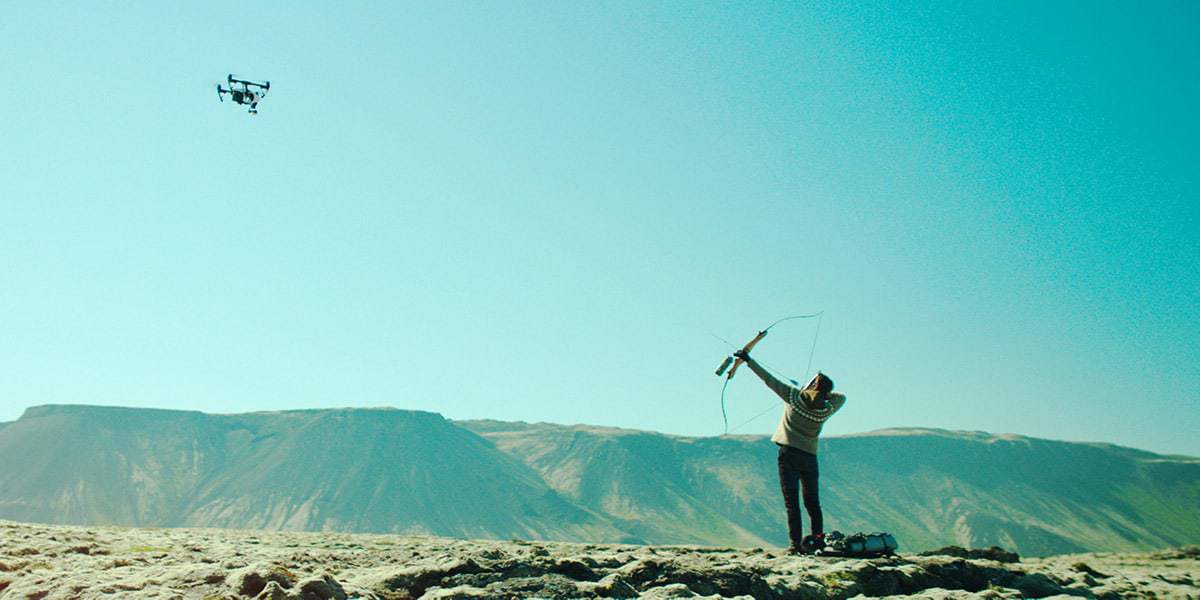
Discover one film you didn’t know you needed:
Not in the zeitgeist. Not pushed by streamers.
But still easy to find — and worth sitting with.
And a guide to help you do just that.
One of our favourite films from the Cannes Film Festival is heading to TIFF next week. Benedikt Erlingsson’s Woman at War follows Halla (Halldóra Geirharðsdóttir), a dynamic woman in her fifties who is very involved in the local community of her small Icelandic town. But behind her unassuming appearance, Halla hides a secret identity. Politicians and the press know her as “The Woman of the Mountain”: a mysterious eco-warrior waging a one-woman war against the local aluminium industry, regularly sabotaging the factory all by herself. But Halla also wants to be a mother. Just as she is focusing all her energy on committing her latest act of vandalism, she receives a letter from the adoption agency: a little girl is waiting for her in Ukraine.
Erlingsson is right to describe the film’s structure as classical, but that isn’t a slight in this case. Woman at War is highly entertaining, expertly managing the viewers’ expectations and playing with the rules of conventional narrative — throughout the film, a band of musicians show up within the diegesis, scoring the film live and commenting on the action; Halla sometimes sees them; sometimes, she doesn’t. When the little Ukrainian girl enters her life, the Icelandic band is joined by an Ukrainian choir in traditional attire.
Fun, thrilling, surprising, and ultimately deeply moving, Woman at War also offers a refreshingly frank view of climate change — the situation is much more urgent and imminent than many of us want to believe — and of effective activism — it’s not easy, but we’ve got to take the situation into our own hands.
Erlingsson talked to us back in Cannes about following a classic Aristotelian structure, shooting action scenes while avoiding genre labels, and focusing on storytelling rather than on lecturing the audience.
Seventh Row (7R): What was the genesis of the project, and why include the topic of climate change in the story?
Benedikt Erlingsson: If you’re going to make an action film about saving the world, climate change is a real threat and we are the last generation that can do something about it. It’s a bigger danger than we realise. I also wanted to address the fact that environmentalists and activists who are fighting to preserve the environment easily become enemies of the state. We see this all around. We see environmentalists like Berta Cáceres from Honduras who was murdered, and Yolanda Maturana from Columbia. We see this throughout history. In the film, our hero also uses sabotage, like Mandela did against apartheid. So this is a very interesting subject.
[click_to_tweet tweet=”‘If you’re going to make an action film about saving the world, climate change is a real threat and we are the last generation that can do something about it.'” quote=”‘If you’re going to make an action film about saving the world, climate change is a real threat and we are the last generation that can do something about it.'”]
7R: Do you perceive the protagonist as some kind of eco-terrorist?
Benedikt Erlingsson: No, I perceive her as an eco-warrior. She’s not a terrorist, she’s not creating terror, she’s not harming people. She’s only sabotaging structures. But she is doing what all fighters have been doing: for non-violent protest to work, it always needs to have an economic fist. That’s how they succeeded with apartheid; it was, of course, what Nelson Mandela was doing by sabotaging the infrastructures in South Africa. He was trying to make an economic fist. It’s the method of Gandhi, who used strikes and boycotts to sabotage the industry of England, the coloniser. This is really the principle of nonviolent action: it has to be backed up with some real economic pressure. Simple protest is not enough to win the day.
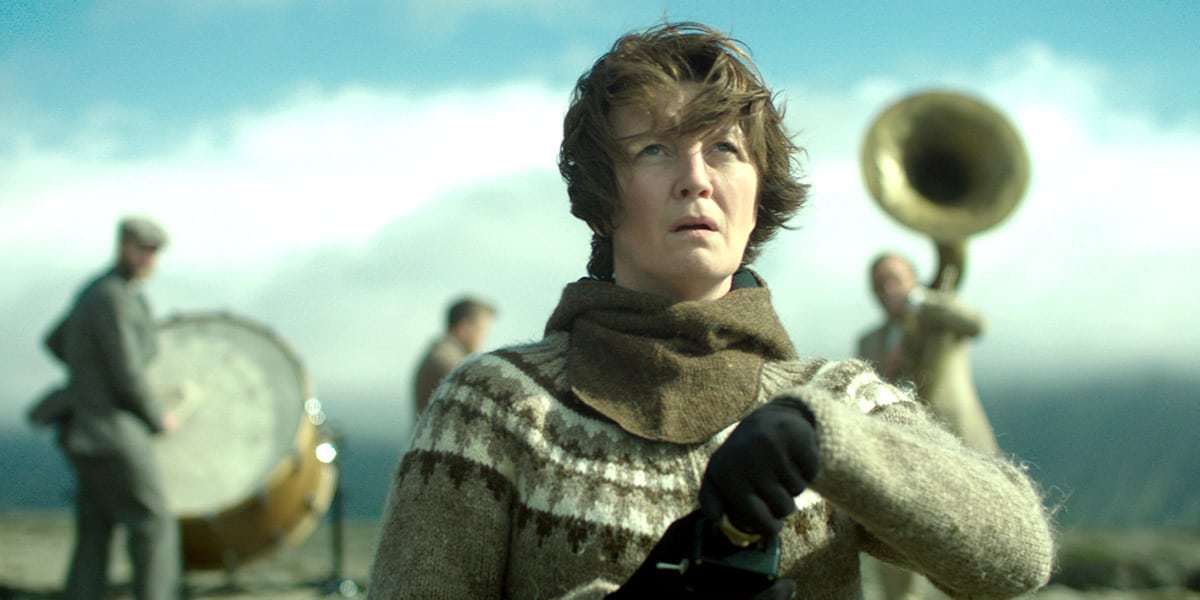
7R: Was the character always going to be a woman?
Benedikt Erlingsson: Yes. It comes from the her dilemma in the story. I didn’t really think about it in those terms. It’s very much in our Nordic and Icelandic culture, where women are very active in the fight and in politics.
7R: Are you, personally, an environmental activist?
Benedikt Erlingsson: No, not anymore. I used to be, as a young man. I chained myself to a whale boat; we were fighting against whale hunting in Iceland. That was when I was 18 years old! But it’s really interesting: you can see the people protesting against the pipelines in America. It’s happening everywhere.
[click_to_tweet tweet=”‘I wanted to address the fact that environmentalists and activists who are fighting to preserve the environment easily become enemies of the state.'” quote=”‘I wanted to address the fact that environmentalists and activists who are fighting to preserve the environment easily become enemies of the state.'”]
7R: Most of the film is concerned with Halla being an activist, and then, in the last 15 minutes, it focuses completely on her wanting to adopt a child. It’s a fascinating structure that blindsided me. I was moved to tears by this shift in gears. How did you come up with this original structure?
Benedikt Erlingsson: In a way, the film is really traditionally structured. It’s in eight sequences, with the Aristotelian principle in three acts. In the eighth or ninth sequence of the film, she’s at her lowest point. And then you have a twist: she goes to get the child. But it’s all fucked anyway because the world is drowning. So, I would argue this film is very strictly organised following the eight sequence theory. There is that contrast between the activism story and the child story, but we have been planting that child story in the film throughout, and it is this child that is calling her to be an activist.
7R: The film is also really funny, through the action and the dialogue, but also with the music. At the end, it suddenly becomes much more earnest and moving.
Benedikt Erlingsson: By this point, the musicians cannot even play anymore. They have to hold their instruments above the water. But the Ukrainian choir is singing a spring song about hope. There is hope.
[click_to_tweet tweet=”‘For non-violent protest to work, it always needs to have an economic fist. Simple protest is not enough to win the day.'” quote=”‘For non-violent protest to work, it always needs to have an economic fist. Simple protest is not enough to win the day.'”]
7R: The musicians commenting on the action and breaking the fourth wall remind me of a Greek chorus.
Benedikt Erlingsson: Absolutely. But there’s also the idea of daemons. In Roman mythology, they’re called genius. You have the good genius in your house. Plato said about Socrates that he had good daemons whispering in his ear.
The Greek chorus is also a way to be playful. In fairytale, it is obvious and it’s often done. It’s not often done in cinema. But you can do it, if you make an agreement with the viewer early on that this is a film with a band of musicians commenting on the story. You just need to do it properly at the beginning. Then the public will follow and be able to concentrate on the drama at the same time. You can even break that agreement, sometimes, and the public will be thrilled — “Oh, it’s a new agreement! OK!”
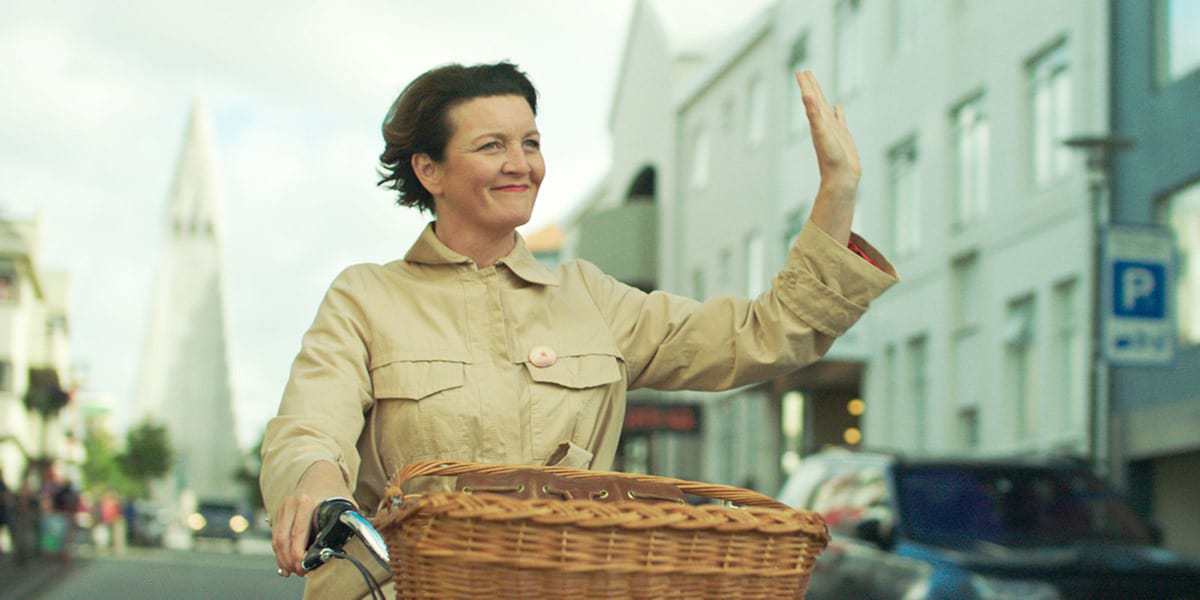
7R: How did you go about the casting? The role of the main character is so important and nuanced.
Benedikt Erlingsson: She was a very obvious choice, in a way. She’s a very big and very beautiful Icelandic actress. We go a long way back. We’re good friends. We worked together in the theatre as children, and we were together in theatre school. We took a chance doing catering, I was the concierge, and she was the chef. And then we worked together right away when we finished theatre school.
So we have a long story. But I had to go a long way to find her, because I was also interested in having real twins to play the two characters; there were other actresses I was interested in, but I eventually came back to Halla.
[click_to_tweet tweet=”‘There is that contrast between the activism story and the child story, but it is this child that is calling her to be an activist.'” quote=”‘There is that contrast between the activism story and the child story, but it is this child that is calling her to be an activist.'”]
7R: How did you work with her? Did you give her any space for improvisation, or was it a really tight script?
Benedikt Erlingsson: The script was really tight, and everything was scripted. There was some space for some things that I wanted to try. But almost everything was scripted and storyboarded.
7R: There are many moments in the film where it looks like an action film. Was this very challenging for you and the actress?
Benedikt Erlingsson: Well, you know, it’s mostly in the editing — cut, cut, cut, creating energy. I think it was the easiest part. But we were, of course, doing some stunts and running. She was in good shape, and that was the fun part! The difficult part is the most fun. We were also recording the music live on set as much as possible. But we also shot some backups in studio so that we wouldn’t be trapped with the music at the editing stage.
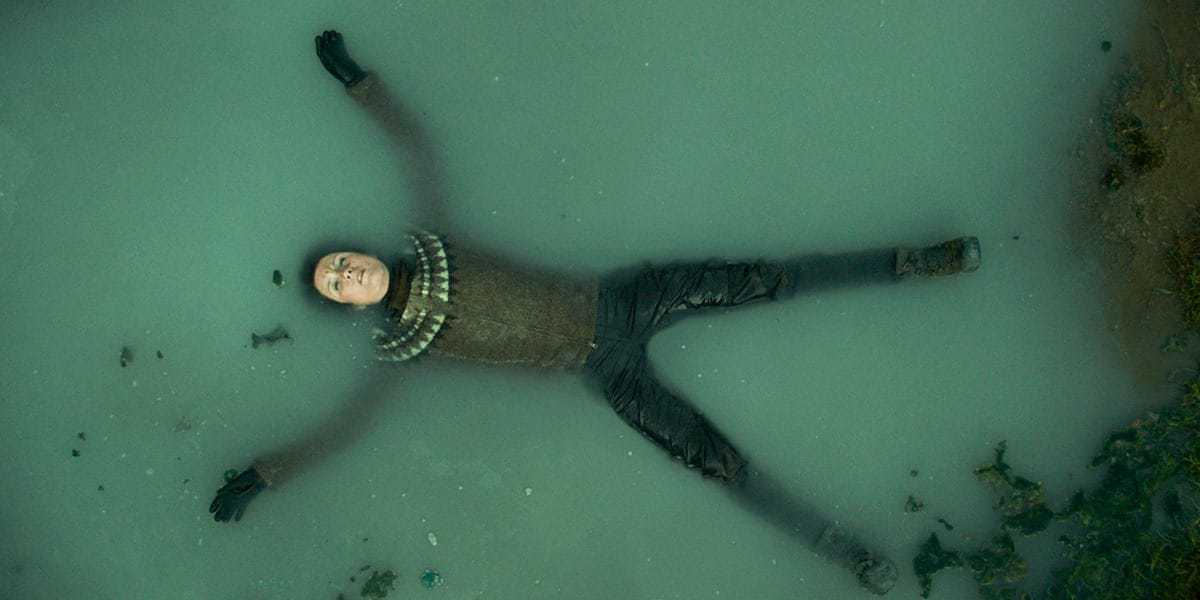
7R: Did you try to fit the film into a genre when you were writing it?
Benedikt Erlingsson: No. In the creative process, I don’t think about genre. Come what may. It’s like making a child: you’re not thinking of what sex the child will have while you’re making it! Me and my co-writer, we called it a fairy tale. We only talked about the action film genre when we were thinking about how to shoot the action sequences.
7R: The film reminded me about how, everyday, we make important choices.
Benedikt Erlingsson: I think that when I chose to make this film, I had to decide to do something that was very important even though it was really difficult. There is a book by Astrid Lindgren called The Brothers Lionheart, in which one brother tells the other that there are certain things you have to do, even if they’re difficult and dangerous. The brother asks why, and the other replies that otherwise, you’re not really a person, you’re just a little shit.
[click_to_tweet tweet=”‘In the creative process, I don’t think about genre. Come what may.'” quote=”‘In the creative process, I don’t think about genre. Come what may.'”]
7R: When you knew you wanted to make a film about climate change and the need to take action, was it a challenge for you not to make the audience feel guilty about their own relationship to the environment?
Benedikt Erlingsson: I hate these films that tell you, “You should do something about this!” This is not an issue film, or a propaganda film. It’s just my kind of story. I’m a storyteller, I did a lot of storytelling in theatre, and now I’m working in film, so I think it’s an unconscious process. I don’t really analyse my style, but you could say it’s an entertaining style. One of my methods is, if I’m in a very noisy bar with my friends, and there are other people around them, I will tell my friends a story to keep their attention. I have competition, so I cannot only be dramatic and filled with pain, I also have to use the tricks of storytelling.
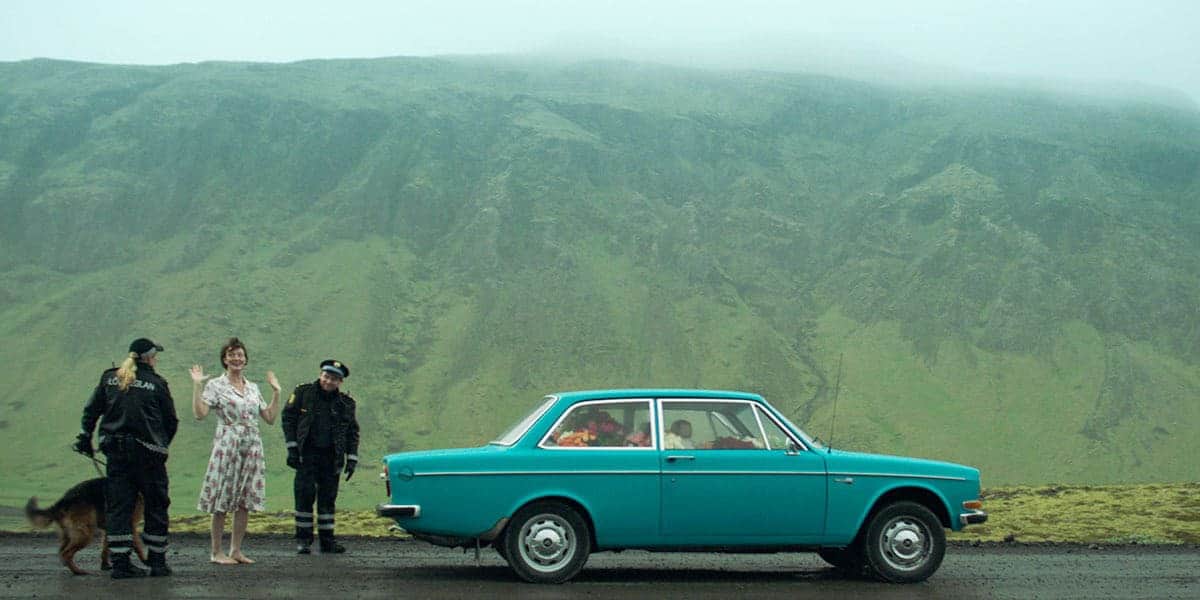
7R: Are you rather optimistic or pessimistic regarding climate change?
Benedikt Erlingsson: I think we are on the knife’s edge now. The thing is that climate change scientists are more pessimistic off the record than on the record.
[click_to_tweet tweet=”‘I hate these films that tell you, “You should do something about this!” This is not an issue film, or a propaganda film.'” quote=”‘I hate these films that tell you, “You should do something about this!” This is not an issue film, or a propaganda film.'”]
7R: Did you consult actual scientists?
Benedikt Erlingsson: Yes. Nobody wants to hear the apocalyptic story, but I think we have to be more scared. And we need the state to act. I think consumers are weak, they don’t have enough power to change their lifestyles sufficiently. We need the help of the state to make rules, like in war: for example, you can’t take a plane more than twice a year, or you can’t eat meat more than twice a week, or you can only drive a small car. It’s tough, but we have reached this place. Who is going to do this? Which politicians? Can we give politicians the power to make these decisions? We have come to that. I think we have to act extremely fast now.
[click_to_tweet tweet=”‘Nobody wants to hear the apocalyptic story, but I think we have to be more scared.'” quote=”‘Nobody wants to hear the apocalyptic story, but I think we have to be more scared.'”]
7R: In the film, you also highlight that it’s a problem rooted in capitalism.
Benedikt Erlingsson: It’s a system. It’s a cultural waste we are really up against, and we need the instrument of state to step in and do this fast. Some nations are doing it. France is doing it. As part of the Paris agreements, some countries agreed to limit the temperature increase this century to 1.5 degrees. This takes a lot of effort; we have to reduce consuming. We shouldn’t talk about anything else; this should be our focus right now. We are at war with ourselves, so I think this is the subject of all subjects.
[click_to_tweet tweet=”‘I think consumers are weak, they don’t have enough power to change their lifestyles sufficiently. We need the help of the state to make rules, like in war.'” quote=”‘I think consumers are weak, they don’t have enough power to change their lifestyles sufficiently. We need the help of the state to make rules, like in war.'”]
7R: Do you have another project?
Benedikt Erlingsson: Yes. It will take place in three different periods. Climate change will come into it, because it’s science-fiction, but it’s not dystopian. One part will be set in 2077, where we have found a solution to climate change, and the two other parts will be set in 1977 and 377.
Tonie Marshall’s Numéro Une is much more directly concerned with sexism — the film follows a woman pushed by a feminist lobby to become the first woman CEO in the CAC40 — but, as in Woman at War, this feminism is part and parcel of the film’s very text. It isn’t in the subtext; rather, it is inseparable from its story. This allows all of the female characters to be well-rounded and complex, rather than cliches of feminism.
Quebecois writer-director Chloé Robichaud does a similar thing in Boundaries (Pays). The fiction film focuses on three women working in politics who face ordinary sexism constantly, but these women’s very existence casually yet undeniably proves those sexist assumptions wrong every day.

